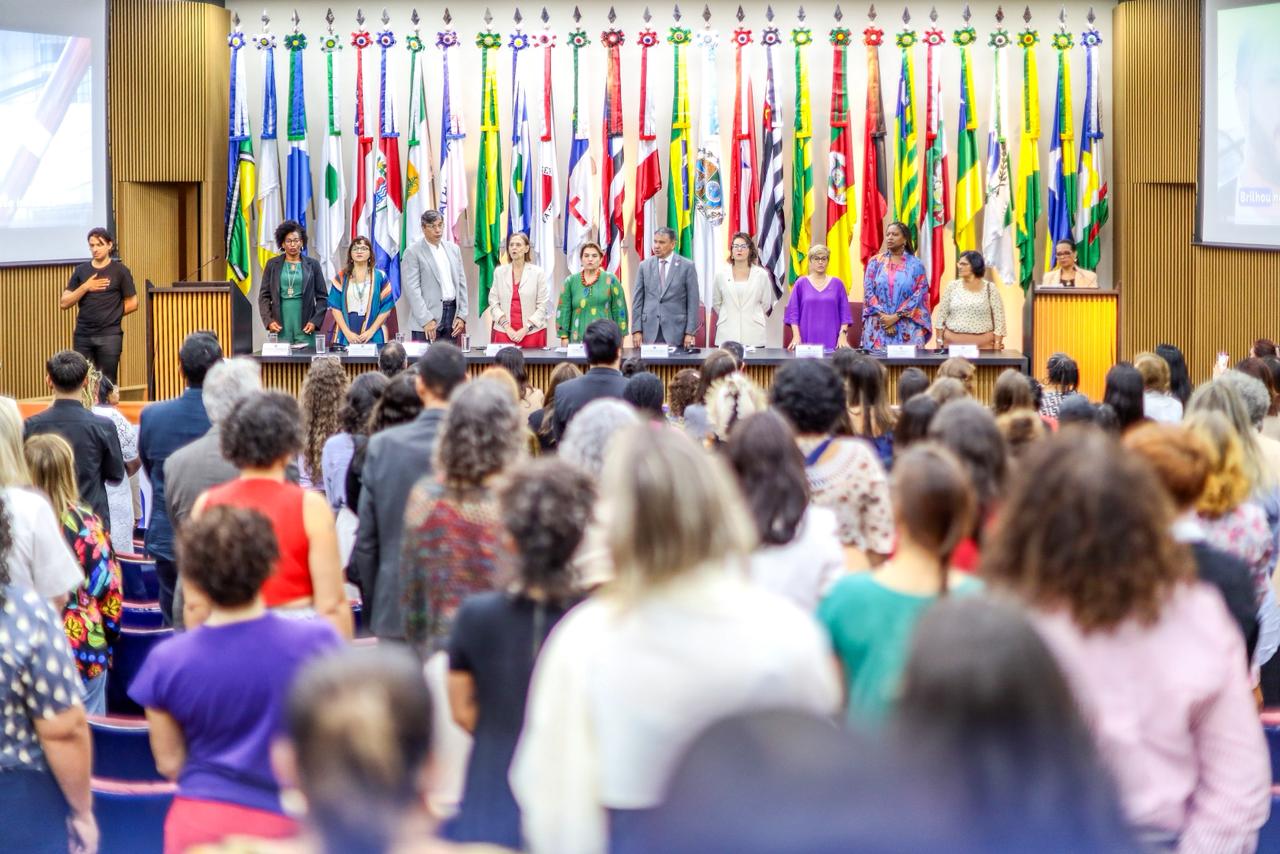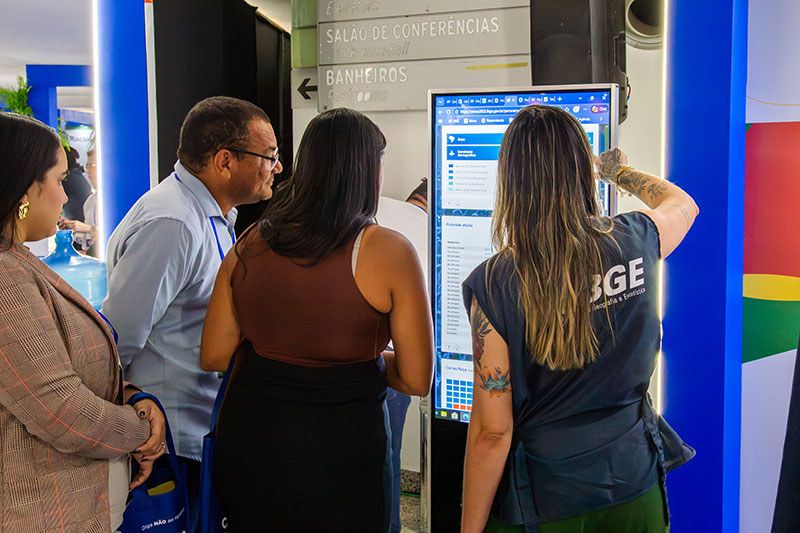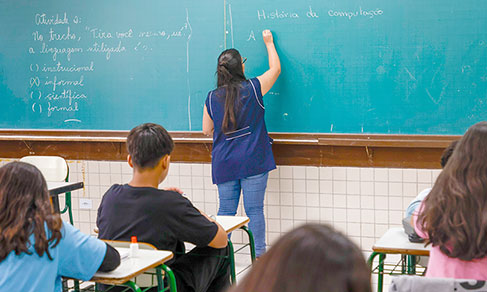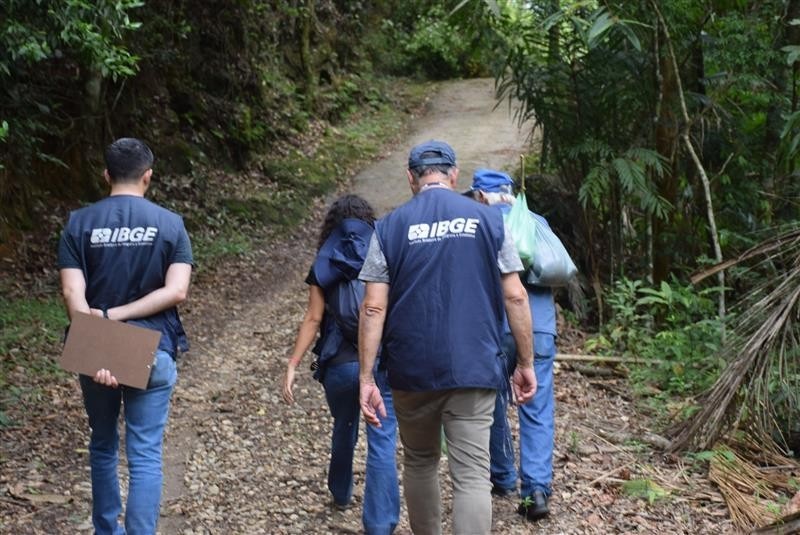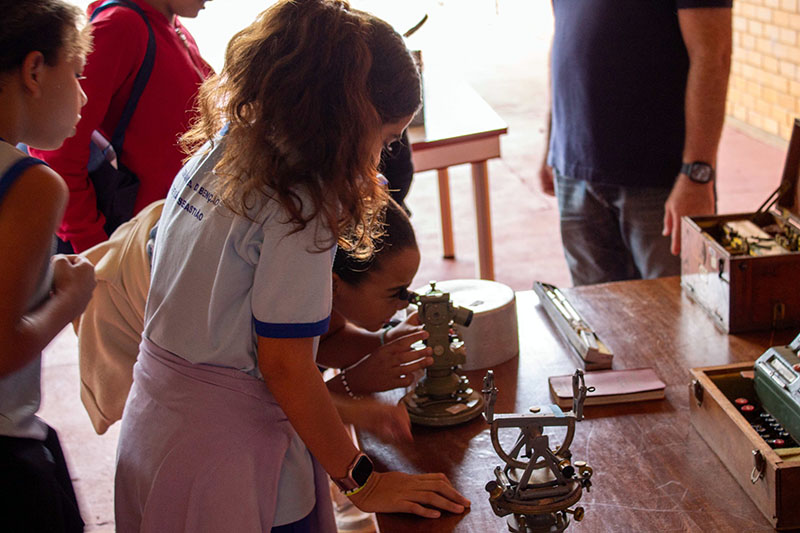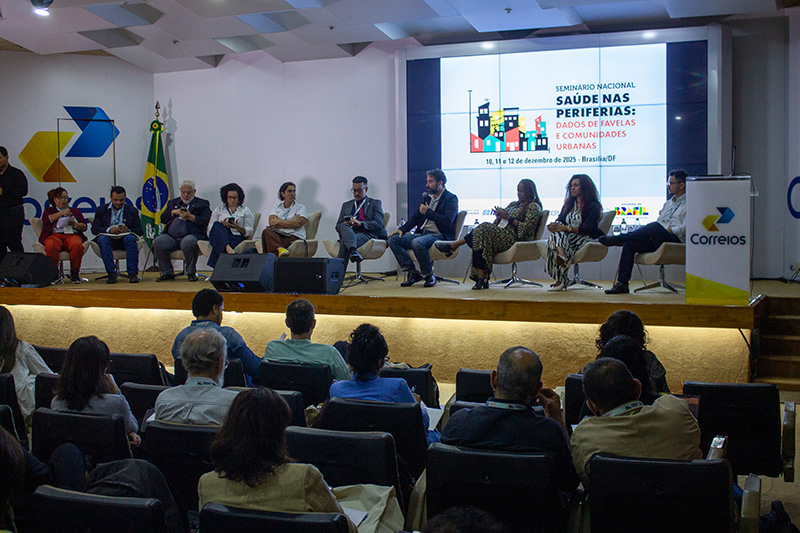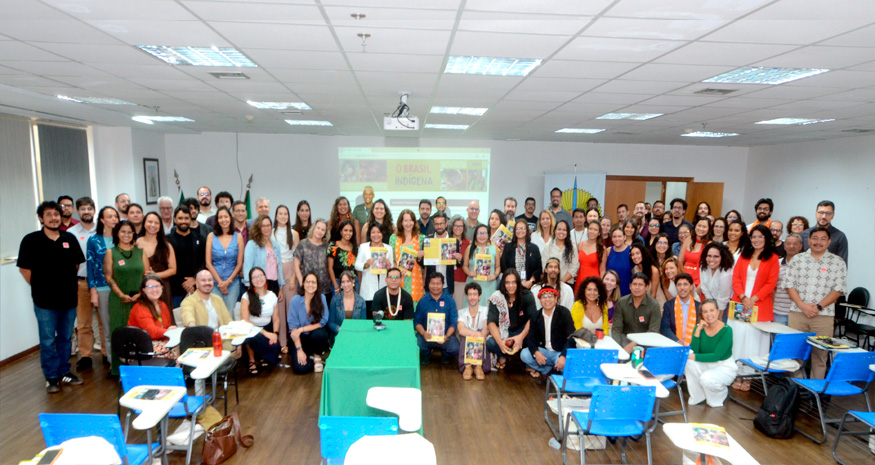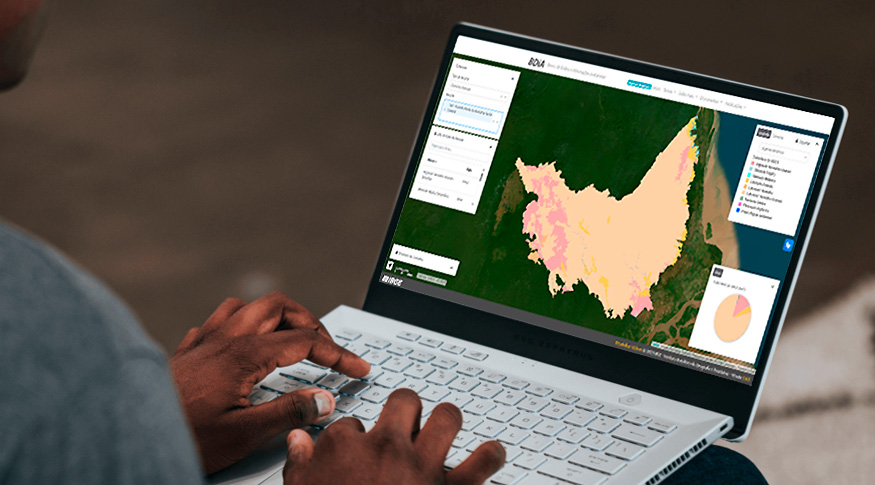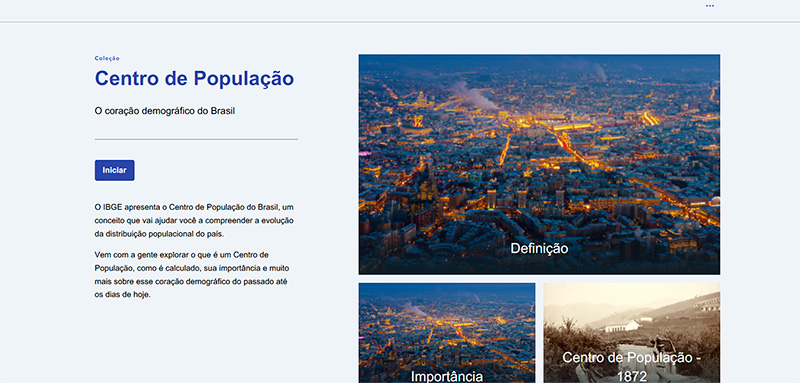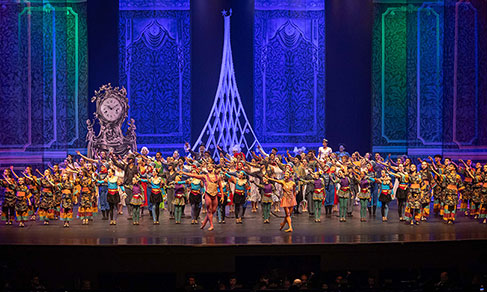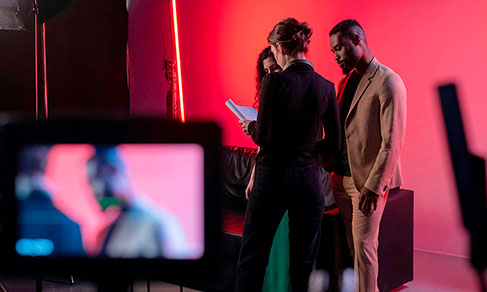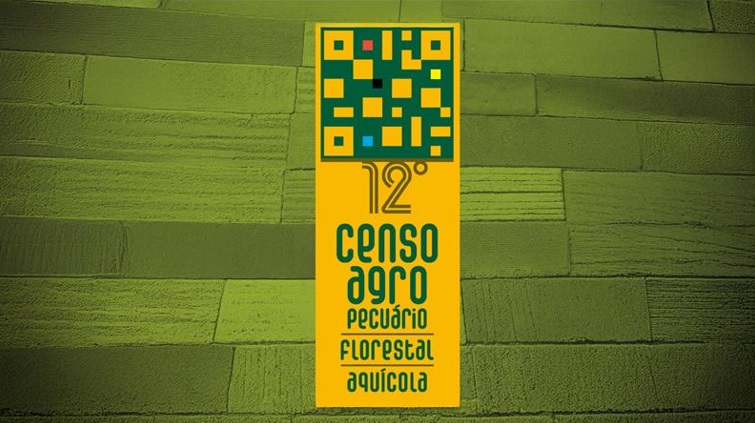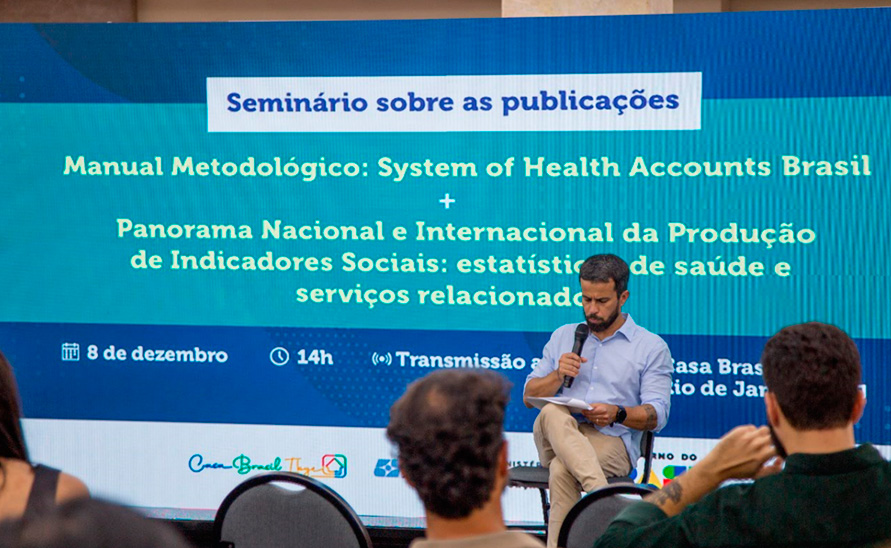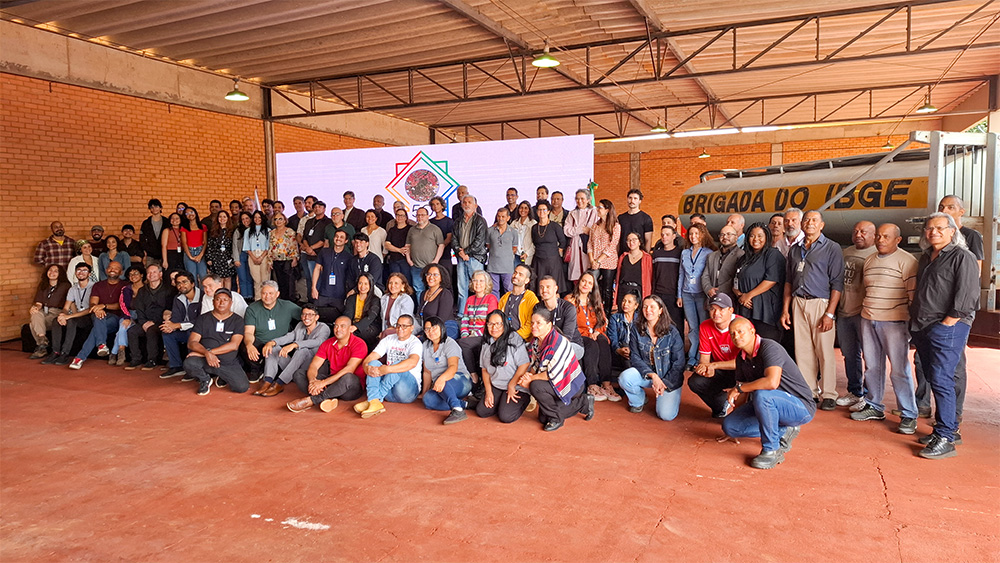IBGEeduca
6th edition of the Seminar "IBGE with Open Doors to Schools" proposes taking Census results to children
November 14, 2023 05h52 PM | Last Updated: November 16, 2023 05h14 PM
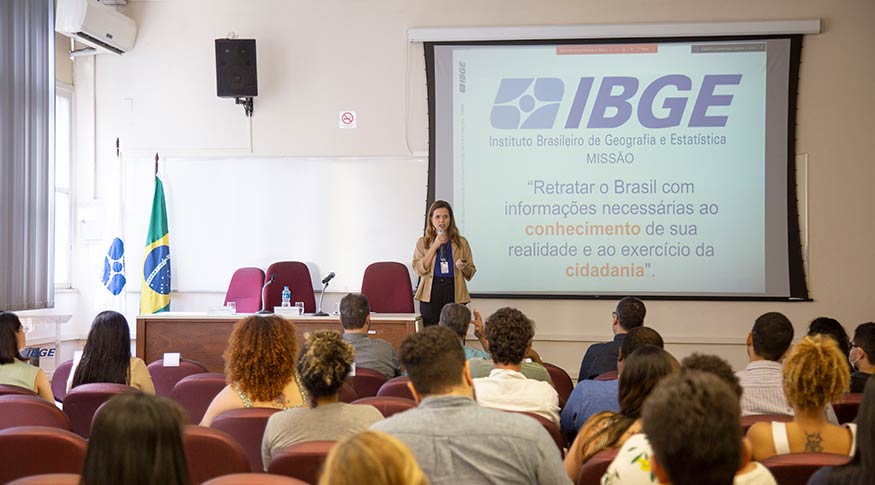
The National School of Statistical Sciences - ENCE – hosted on Monday (13), the sixth edition of the Seminar: IBGE with Open Doors t o Schools. With the theme “Census Results – how to take Brazil's picture to classroom?”, the event took place at ENCE's auditorium and was broadcast live on the IBGE channel on the YouTube. At the openning session, the manager of educational affairs, Renata Corrêa, the CCS coordinator, Bruno de Vizia and ENCE's headmaster, Paulo Jannuzzi, stressed the importance of the project, emphasizing the relevance of statistical litteracy for children.
Headmaster and professor of ENCE, Paulo Jannuzzi highlighted the future of the IBGE and the integration between ENCE and the IBGEeduca initiative, showing full support to the project of Census information dissemination. “I'm glad to see a number of activities designed to disseminate the 2022 Population Census, in this new moment when we can use our statistics and geographic products to analyze Brazil. We will get whatever support is needed to develop this project in the best way", said Mr. Jannuzzi.
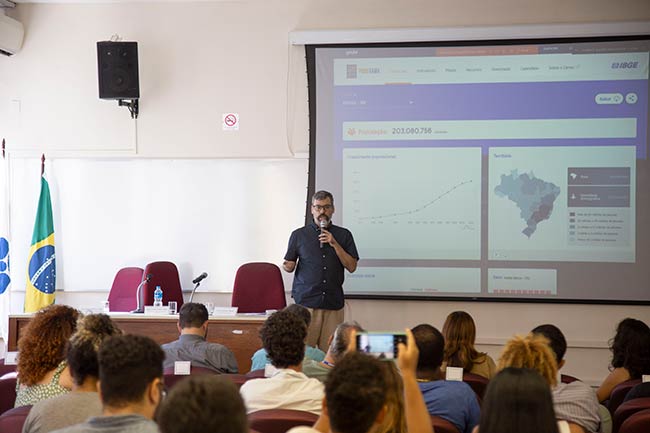
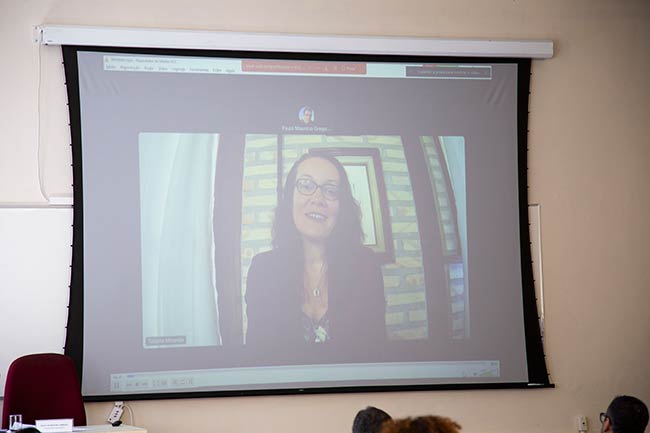 IBGE educator, Tatiana Miranda, mentioned the importance of taking Census information to students in a humanized way - Photo: Licia Rubinstein/IBGE News Agency
IBGE educator, Tatiana Miranda, mentioned the importance of taking Census information to students in a humanized way - Photo: Licia Rubinstein/IBGE News Agency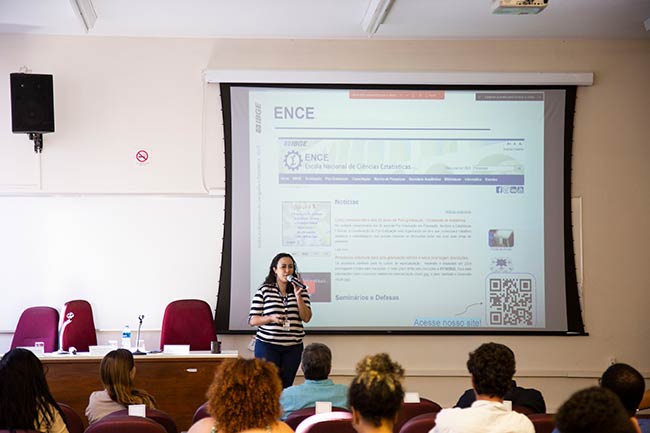 ENCE researcher, Renata Bueno talked about the “Statistical Education” extension project in partnership with the Orlando Villas Boas Municipal School - Photo: Licia Rubinstein/IBGE News Agency
ENCE researcher, Renata Bueno talked about the “Statistical Education” extension project in partnership with the Orlando Villas Boas Municipal School - Photo: Licia Rubinstein/IBGE News Agency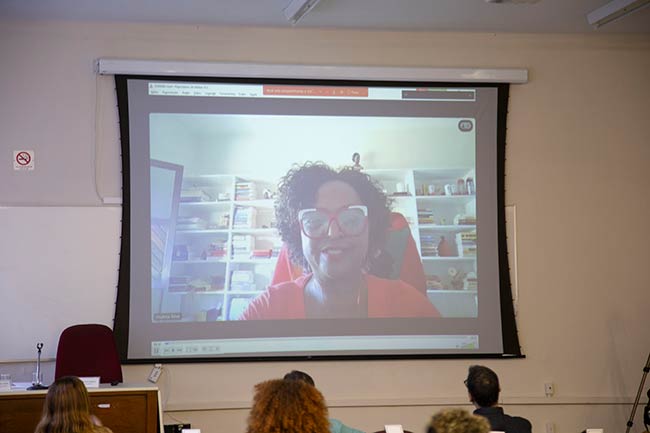 Via video call, Givânia Maria da Silva commented on the importance of information about Quilombolas in the Census and its use in basic education - Photo: Licia Rubinstein/IBGE News Agency
Via video call, Givânia Maria da Silva commented on the importance of information about Quilombolas in the Census and its use in basic education - Photo: Licia Rubinstein/IBGE News AgencyIn his speech, Bruno de Vizia highlighted IBGEeduca's ability to communicate with external audiences, especially younger people. “This project is very important because it is the materialization of something that is essential not only for the IBGE, but for the future of Brazil, which is statistical literacy. It is a way by which children begin to get to know, first of all, their own country”, said the CCS coordinator.
Next, eight presentations marked the event, with different perspectives on the relationship between statistical and geographic information and education. Mentioning the IBGE, the institute's educational affairs manager, Renata Corrêa, spoke about the IBGEeduca initiative, in addition to the challenges in disseminating Census information for children and young people, using as an example the awareness raised with the Indigenous and Quilombola characters broadcast through videos, books and also through social media.
Guilherme Garcia (CEON/GENOV) presented the images created to publicize the Census for children. He also highlighted accuracy and clarity, personal relevance and visual support as project principles, not to mention the importance of redundancy of information, with the use of videos, texts, images and graphs. Mr. Garcia also highlighted the challenges for schools without access to the Internet or with Internet access only via cell phones.
Via video call, IBGE educator and PhD in Social Sciences, Tatiana Miranda, spoke about bringing Census information to students in a way that makes it possible to humanize the data. Qutoting from the National Common Curricular Base, Tatiana spoke about the use of technologies to achieve this objective.
ENCE researcher Renata Bueno highlighted the history of the National School of Statistical Sciences and the “Statistical Education” extension project. In partnership with Orlando Villas Boas Municipal School, ENCE carried out a census among elementary school students led by undergraduate students. In addition to the methodology, she also presented the results of the partnership. “Census copes with statistical literacy,” she emphasized.
Also remotely, Givânia Maria da Silva (CONAQ) and Eliel Benites, from the Ministry of Indigenous Peoples, handled the presentation of Census data related to Quilombolas and Indigenous people, respectively. The 2022 Census is the first to present the unprecedented number of Quilombolas in Brazil, in addition to recording the milestone of one million Indigenous persons. Both of them mentioned the challenge the IBGE faced raising awareness among both populations to obtain data.
Concluding the event, educator Rafael Bronz, from the Sá Pereira school, located in the Botafogo neighborhood in the city of Rio de Janeiro, presented the institutional project of building a Census among elementary school students themselves. Categories such as personal information, health, good habits, finances and GDH (Gross Domestic Happiness) were used. At last, ENCE Technical Assistant Director Bianca Walsh presented other statistical literacy initiatives around the world that can bring knowledge to the IBGE. Initiatives such as those of the Hellenic Statistical Authority (Greece), the US Census Bureau (USA) and the Central Statistics Office (Ireland) were mentioned. And also the initiatives in Portuguese-speaking countries, such as Portugal, Angola, Mozambique and São Tomé and Príncipe.



